Nigerian human rights lawyer Rommy Mom asked awkward questions and paid the price.
Meeting Nigerian human rights lawyer Rommy Mom last week made me ponder again just how deep my commitment to doing the right thing runs.
I think of myself as a nice-enough person, but would I, if I had been a German man in the 1930s, have endangered my wife and three children (and let’s be honest, myself) by speaking out against the regime? Or would I have been one of the pusillanimous described by 18th-century philosopher Edmund Burke when he said: ‘All that is necessary for the triumph of evil is that good men do nothing?’
Mom is emphatically not one of the pusillanimous. He stood up to the political elite of his home state Benue, in Nigeria’s mid-eastern region, and he and his immediate family suffered the consequences. They have had to flee their home, leaving behind relatives, friends and Mom’s law practice, to resettle in Abuja, Nigeria’s capital, 245 miles away.
Mom’s offence was to question the whereabouts of the millions of pounds of humanitarian aid donated by the federal government, philanthropists and other donors to help the state rebuild after devastating floods in 2012.
There has been no sign of any rebuilding projects. The money has disappeared into thin air – or into Swiss bank accounts.
There was, says Mom, a ‘deafening silence’, even after he had used the country’s freedom of Information law ‘to find out exactly what was happening to the money’. The silence was broken only, he says, by a death threat – hence his decision to run.
That would have been enough to silence most people, but instead of sitting on his hands since moving to Abuja, Mom continues to stand up for the vulnerable. He told the Gazette: ‘Women seen out at night in Abuja are deemed to be sex workers and taken into police custody, where they are often raped. Many women who are not prostitutes have suffered the same way.
‘They are arrested under the rules of the Abuja Environmental Protection Board (AEPB), whose purpose is to clean up pollution and stop people using the streets as toilets. Its role has never been to clear the city of real or imagined prostitutes.’
He has challenged the AEPB law on gender discrimination grounds. The case is ‘slated for hearing in Abuja in July’, says Mom.
But in the meantime, he has made more powerful enemies: the Abuja police.
Mom is also unafraid to speak out against Boko Haram, the extremist group that two months ago abducted an estimated 270 schoolgirls and has been conducting a murderous insurrection within Nigeria for years.
He says: ‘Boko Haram previously had a political dimension, in particular the goal of preventing president Goodluck Jonathan from, unconstitutionally, taking on a further term of office. Islamists then hijacked its agenda. But now it is just a bloody and purposeless terror group.
‘If you look at the videos it puts out, you can see that everybody is high on drugs.’
There is a solution, says Mom – the army, which used to be ‘the pride of all Nigerians’. Billions of pounds have been pumped into the army, he says, but so much has been stolen that the Nigerian army is now ill-equipped and ill-trained, with soldiers going unpaid and, in one instance, mutinying against its officers.
‘The army should be able to defeat the ragtag Boko Haram,’ he insists. ‘With elections approaching in 2015, this is our last chance to hold free and fair elections to stamp out corruption and take our place among the world’s leaders.’
It comes with the job that I meet lots of human rights lawyers like Mom. I ask them: why do it and risk your lives and livelihoods? And their replies are always broadly similar: ‘To leave a better world for future generations’, or ‘to foster the dignity of the rule of law’, or ‘to speak out for the weak and dispossessed’.
Good motives all – and several steps up from being merely ‘a nice-enough person’.
- Rommy Mom is the president of Lawyers Alert, a 36-lawyer body that monitors and documents human rights violations across Nigeria and tries to bring relief to victims. He visited London in May as a guest of freedom of expression campaign group Index on Censorship.

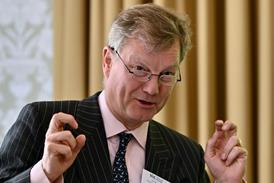
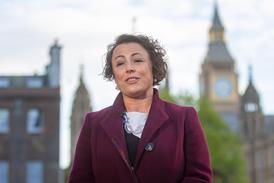

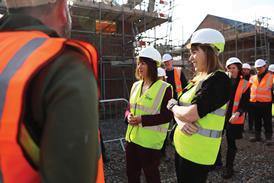
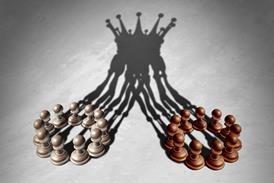

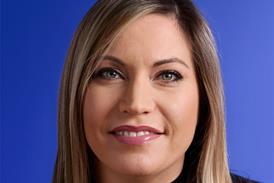
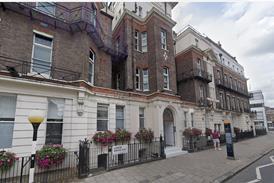








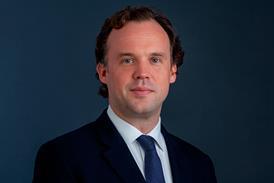
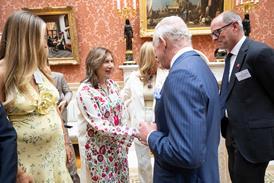
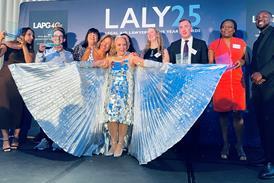










4 Readers' comments